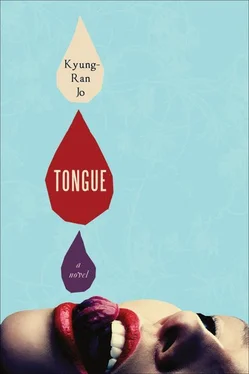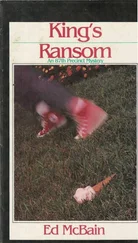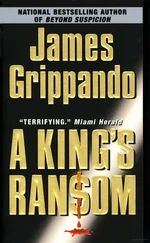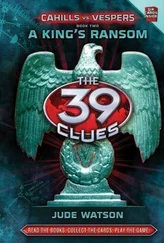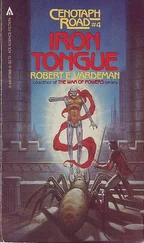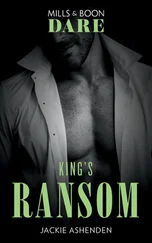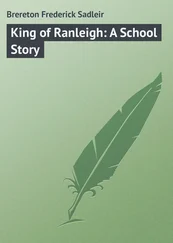I’m tired of hoping he will come by and waiting for the phone to ring. With even Paulie gone, there’s nothing left that connects me to him. I lie on the living room couch and look up at the spiral staircase leading to the second floor, giving in to my imagination. I imagine receiving his phone call; I imagine him coming to see me, sitting with him at the table to eat, and making love with him after we’ve slowly peeled off our clothing. But here I am lying in the dark listlessly, my ribs sticking out.
I get up and open the fridge. I take out a head of cabbage, thick, big, heavy. I rip off some leaves and wash and drop them into boiling water to make broth. I’ve heard the story of a blind person recovering his sight after washing his eyes with cabbage broth—possible only in legend. But we did exactly that three years ago. I placed at his bedside a bundle of tetterwort I’d collected from the hospital grounds and waited every night, fervently, for him to produce tears. It was the hardest time, he said once in a quiet voice, remembering. And he gripped my hand, which he was holding, even harder. Where did those times go?
I place the lid on the pot and balance over it the ladle I had been holding. The broth of a boiled cabbage is effective in treating alcoholism as well as insomnia. If I can’t fall asleep I’ll be unable to tell bean sprouts from mung-bean sprouts, confuse flounder with stingray, and continue to trip over plastic bags and fall. A sour smell wafts up, the smell of cabbage.
Cabbage is born from tears. When Dionysus arrived in Trachia, Likourgos led his army to capture the god. Gaia, the goddess of the earth, cast a spell on Likourgos, who went crazy and, confusing his son Drias for a grapevine, took his sword and cut him in two. Adonis then captured and tortured him, ripping his body apart. Cabbage sprouted from the sand where Likourgos’ tears dropped. Even now, farmers don’t plant cabbage near grapevines because bees might transfer the smell of cabbage onto the grapes. Cabbage contains sulfur, so it stinks when you boil it. People are most sensitive to bitterness. I down the hot cabbage broth and get into bed and pull the covers over my head. What would grow from this place where my tears have dropped? It would be better to think about something else. Something more interesting and sensual and specific. Something I can fall asleep to with a smile on my face.
Coffee and bread
Butter and jam
Ham and Emmentaler
Truffles and foie gras
Mayonnaise and cooled roast chicken
Melon and Parma ham
Caviar and vodka
Pea porridge and honey
Fried cod and garlic
Spinach and roast duck
Shrimp and curry
Scallops and pasta
Mussels and white wine
Calf brains and butter sauce
I feel myself loosening up, as if a spoonful of something delicious has just entered my mouth. I understand how appetite and hunger and thirst and deprivation expand one’s palate. I smack my lips and sink one step further into sleep. If I were a fish, I would be a small, flat, fresh, sparkling, silver-gray turbot. One that has firm flesh and delivers a good bite, best when you crunch down on it whole including the bones—one you can eat in small pieces. If I had to be a shellfish, I’d like to be a scallop, floating deep in the ocean. I don’t want to be an oyster even though it’s snow white and brimming with sweet brine. An oyster lives its life changing from male to female and back again. I like the oyster’s spiraling, intricate shell, which is harder to shuck than you might think. I don’t want to be a starfish, either. A starfish slinks past shellfish, leaving behind only an empty shell—a chilling sight. Even though sea urchin and sea cucumbers are fragrant and expensive, I don’t want to be a spineless organism like them. I’ll stick with being a scallop.
If I were a fruit, I would want to be a ripe avocado, with a hard stone hidden in the middle of soft, silken flesh. Any fruit would be fine, really, except an orange, a hardy-looking but sensitive fruit that turns even if it’s jostled a little. Then again, I do need bright sunshine, wind, and adequate moisture, just like an orange. What about a cherry? It’s not overly juicy but it has a beautiful red color, like a miniature sun. A banana would be fine too. A banana tree has no branches but is made of large leaves. A smaller banana is sweeter. It’s a unique fruit; nobody knows how it came into being. The tree produces only one bunch of bananas at a time, but that bunch is made of hundreds of clusters of fruit. I think I can fall deeper into slumber.
In my dream I’m surrounded by fragrant fruit and I’m conjuring up various foods but I can’t taste any of them. In dreams, taste and smell affect your soul in a minimal way. But the other senses are as acute as when your eyes are open, so if you weep in your dreams you’ll wake up to a wet pillow. In the dream I am not a turbot or a scallop or a cherry or a banana. I’m an oyster gone sour, my juices dried up. I’m placed on a hot fire. A bad oyster should be grilled with butter and sprinkled with nutmeg. I feel pain, as if a sharp knife is being shoved into my closed shell. I wipe my eyes and push back the covers with a jolt. The phone. I think the phone is ringing. I grab the receiver.
“…It’s me.”
I nod.
“Were you still up?”
“I was having a bad dream.”
“I’m sorry it’s so late.”
“That’s okay.”
“I was debating whether to call. And it kept getting later.”
“It’s okay.”
A phone call you wait for never comes. Except now. My heart pounds. Tell me that you called because you were wondering how I was doing. That you missed me. And say one more thing. That you want to come back. Tell me you called to see if you could come back. Then all of this can end. Quietly . I grip the phone tighter. I want to remember this moment forever. What is this love? Is it gold or a diamond, or maybe a truffle? This love is what everyone wants but can’t make, just like gold and diamonds and truffles. I gleam in a sprightly green, a spring asparagus.
“I have to tell you something.”
“…Yeah.”
“I don’t know how to say it.”
“Yes. Come back.”
“…What?”
“Come back.”
“That’s not what this is about.”
“It’s okay. Just say it. Say whatever it is.”
“Paulie, he… he died.”
I hear metal grating against metal. “Wh-what?”
“I know it’s hard to believe, but he died.”
I hunch my shoulders. “What are you talking about?”
“Today—no, it’s already yesterday.”
“Is Paulie—is he very sick?”
“…No, he’s dead.”
“Are you joking?”
“No.”
“Tell me you’re joking!” I growl.
“It’s the truth.”
“Say it again.”
“Paulie’s dead.”
I’m silent.
“Are you listening to me?”
“What did you two do to him?”
“It was an accident.”
“…Did he die? Or did you kill him? Tell me.”
“I told you, it was an accident.”
I can’t speak.
He says one more time that Paulie is dead, his voice hoarse.
RESTAURANT —the word originates from the French verb restaurer , “to restore to a former state,” and until the eighteenth century it referred to a nutritious and invigorating soup. It was only after that that the word changed to signify a place that provided meals. The man who opened the world’s first restaurant was a Frenchman named Boulanger. But the gourmets of the world remember not Boulanger but Beauvilliers, a restaurateur and chef. When a customer entered his restaurant, Beauvilliers would take one glance at him and tell him what he should avoid and what he should eat, then personally prepare dishes that couldn’t be found anywhere else. He became famous not only for his cooking skills and the special attention he paid everyone but also for his extensive memory, which allowed him to recognize an occasional customer twenty years later. French newspapers mourned him when he died in 1820, writing about his life at length.
Читать дальше
